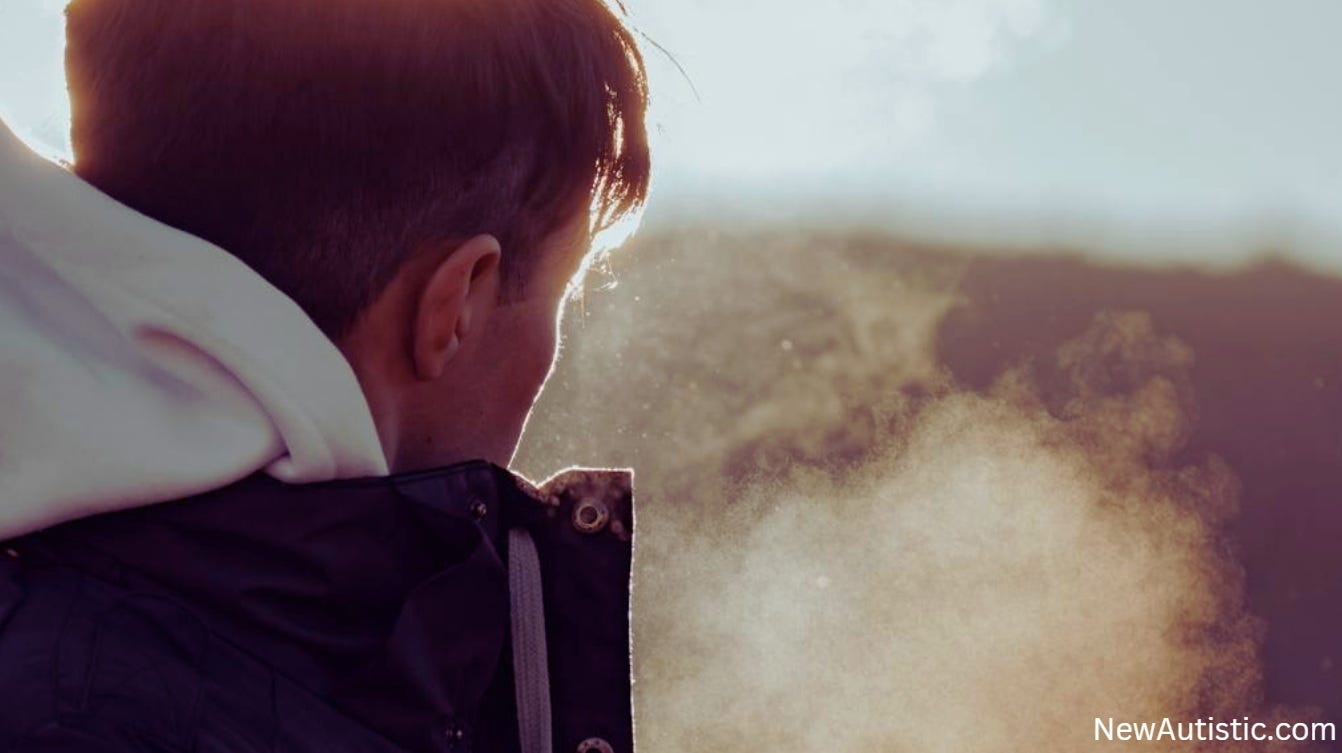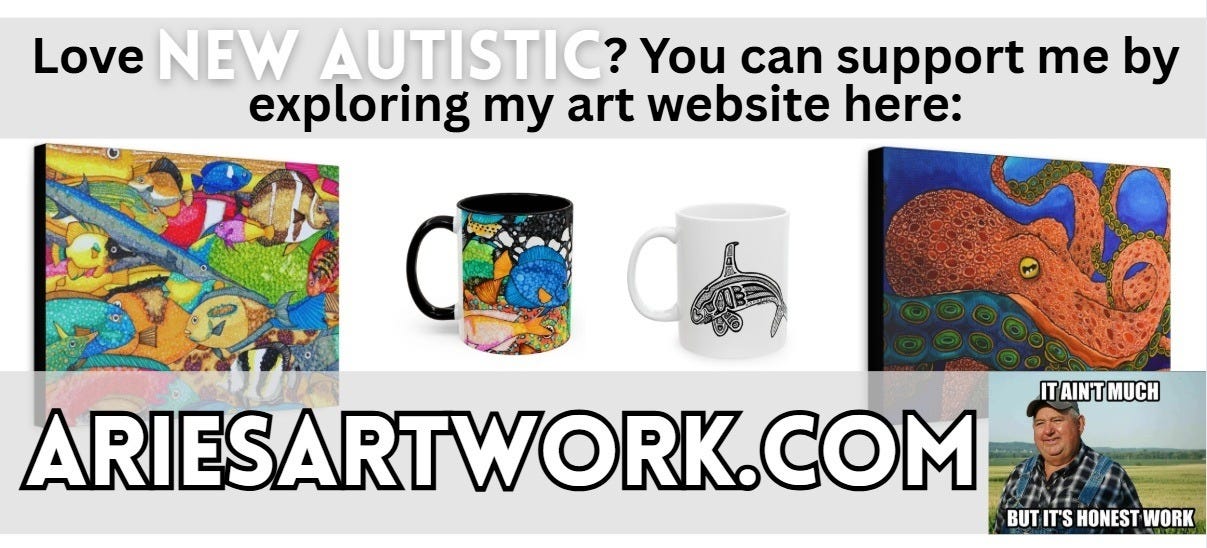Breathing Social Air: Understanding the Autistic Experience
Understanding the Mental Marathon Behind Autistic Social Interactions
Breathing: it’s essential to life, functioning, and even regulating our nervous systems. Better yet, it’s done automatically and without thinking. You’re probably conscious of your breathing now (only because I mentioned it), and for illustrative purposes, I’m asking you to take three breaths while being conscious of doing so:
Inhale, exhale.
Inhale, exhale.
Inhale, exhale.
Pretty simple, right?
But what if you had to do that all the time? Can you imagine how much more mental effort life would take if you had to consciously think about every breath you take? Inhale, exhale, inhale, exhale, inhale, exhale—all day, every day, forever. I think we all can agree it’s a great mercy that we don’t have to be conscious of our breathing, or else it would be much more difficult to get just about anything done.
However, what does conscious breathing have to do with autism? Perhaps some of you might’ve already caught on, but for those who haven’t, let me elucidate further. As a reminder, if you’ve met one autistic person, you’ve met one autistic person. My experience as a Level 1 high-masking autistic is not everyone’s experience. Now, with that out of the way…
What Does Autism Feel Like?
I’ve been asked this question many times by friends and family, and I’ve been trying to find a good way to explain it in a way that non-autistics can understand and relate to. I’ve told them that I often have to script conversations in my head before they happen, closely monitor my word choices and tone, and ensure that I express the correct emotions and affect for certain situations.
“We all do that, though!” is what I’m often told—and you’re right. All people, neurodivergent or otherwise, sometimes make conscious decisions about their social interactions. It’s part of the human experience, for better or for worse. However, the key difference is that for non-autistics (and perhaps those without social anxiety), your thoughts aren’t wholly consumed by considerations regarding social interactions.
Conscious Breathing and Autistic Social Interactions
I bring up again the example of conscious breathing. Everyone consciously breathes sometimes (and I’m sure you’re now aware of your breath once more), but imagine that you had to do this all the time: constantly thinking about inhaling, then exhaling, then inhaling, then exhaling. That’s what social interaction feels like for many autistic people. It’s a constant mental barrage of questions and considerations:
Is my face showing the appropriate amount of emotion? What they said was exciting, so I need to look interested and happy—but not too happy, because then that’d be weird. I need to show an appropriate amount of excitement for the conversation at hand. Oh, they just mentioned they took a vacation to Spain. Should I mention that I’ve been to Spain? I don’t want to try to seem like I’m one-upping them, so maybe not, but I’m trying to connect with them and show that I’m listening, so maybe?
I just mentioned that I’ve been to Madrid as well, although I think I sounded too excited with my tone. People tend to misread my excitement for anger, so I need to correct that by following it up with something else that shows I’m not upset at all—or worse, trying to one-up them.
And (for me, anyway) it’s like this all the time whenever I’m interacting with anyone I don’t know well—and even some I do. It’s a similar amount of effort that would go into conscious breathing, only applied to social interactions. Can you see why many of us, especially those of us who are high-masking, find social interactions so draining and exhausting? It’s not easy for us.
Just as continuous conscious breathing would consume much of your mental bandwidth, so too does social interaction for many autistic individuals. This constant internal processing—monitoring facial expressions, analyzing tone, questioning word choices—represents an invisible and profound cognitive load that neurotypical individuals rarely experience to the same degree.
Finding the Space to Breathe Freely
Understanding autism isn't about assuming everyone's experience is identical, but rather recognizing that for many of us, social interactions require the same deliberate focus as consciously controlling each breath. It's exhausting, invisible work that goes unnoticed and unappreciated.
Next time you interact with an autistic person who seems tired after socializing or who needs extended alone time, remember the conscious breathing analogy. We're not being antisocial; we're simply catching our breath after the mental marathon of social interaction.
My hope in sharing this perspective is to foster greater empathy and understanding. By recognizing the effort behind our social interactions, perhaps we can create more accommodating spaces where autistic individuals don't always have to “consciously breathe” through every social encounter. All of us—neurotypical and neurodivergent alike—deserve moments where we can simply exist without the exhaustion of constant self-monitoring.
Thanks for Reading!
Thanks for taking time out of your busy day to spend some time with me! I encourage all of my readers to RISE (Reflect, Improve, Strengthen, & Evolve) with me because healing is a lifelong journey — it’s not always easy, but it’s always worth it. You are loved, cherished, and valued. Don’t ever let anyone ever convince you otherwise.
My commitment to bringing you FREE, well-researched, and comprehensive content means I spend considerable time and effort writing each article or post without compensation.
Want to Support Me?
The simplest FREE way you can support me is by subscribing, sharing, or leaving a comment:
I believe in keeping my content accessible to everyone, without paywalls, because I know the work I do matters. For that reason, I’m beyond grateful for any financial support! If you'd like to support me and my work, check out my art website at AriesArtwork.com to bring home something unique or find a gift for that special someone in your life:
I’ll see you again when I’ve got a new info-dump for you, my Newtistics Crew!
—Skylar Aries





